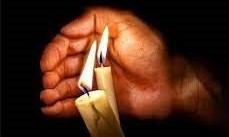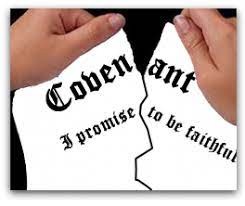Non-Baha’is Are Not Humans or Lack the Traits of Being Considered as Humans
According to Bahā’u’llāh, non-Baha’is are not humans and the consequence of mentioning them as ‘human’ is exclusion from all of God’s Graces:
“From this day, any individual that mentions as human a single person from those who deny me—whether that [denier] has a high or low stature—they will be excluded from all of (God’s) Merciful Graces, let alone trying to prove [those deniers] have dignity or stature.”
Reference: Bahā’u’llāh, Badī`, p. 140.
آنچه در ادامه می خوانید
Non-Baha’is Are Animals

After calling non-Baha’is evil non-humans who have no dignity, he goes on to calling them animals that neither deserve the name nor the description of humanness:
“Today, according to the decree of the Point of Bayān (meaning the Bāb), those individuals who turn away from this Novel Affair (meaning Baha’ism) are deprived of the garb of being called and described [as humans?] and are assembled and mentioned as animals in the presence of God.”
Reference: Bahā’u’llāh, Badī`, p. 213.
“Do not see the polytheists (deniers of Baha’ism) but as earthworms and their sounds but the buzzing of flies.”
Reference: Bahā’u’llāh, Āthār-i Qalam-i A`lā, vol. 1, no. 20, p. 183.
“O group of polytheists (deniers of Baha’ism), if you take pride in your name remaining amongst the animals or being mentioned amongst the livestock, then take pride in that for you are worthy of it.”
Reference: Bahā’u’llāh, Āthār-i Qalam-i A`lā, vol. 2, no. 81, p. 452.
“Oh you donkeys! Whatever God says is the truth and will not become void by the words of the polytheists (deniers of Baha’ism).”
Reference: Bahā’u’llāh, Badī`, p. 174.
“Encompassed as I am at this time by the dogs of the earth and the beasts of every land, concealed as I remain in the hidden habitation of Mine inner Being.”
Reference: Bahā’u’llāh, Gems of Divine Mysteries, p. 4.
“When the one who turned away from God halted (in accepting me) and fell off the path, in that moment his body left the garb of humanness and appeared and became visible in the skin of animals. Sanctified is He who changes the beings how he likes.”
Reference: Bahā’u’llāh, Badī`, p. 110.
Bahā’u’llāh Wishes Death on Non-Baha’is

“Die with anger, Oh he who denies this grace.”
Reference: Bahā’u’llāh, Badī`, p. 213.
“Die with anger O you denying polytheist (denier of Baha’ism).”
Reference: Bahā’u’llāh, Āthār-i Qalam-i A`lā, vol. 1, no. 64, p. 276.
Ironically, these words are uttered by the same Bahā’u’llāh who advises his followers to not wish for others what they do not wish for themselves:
“He should not wish for others that which he doth not wish for himself.”
Reference: Bahā’u’llāh, Gleanings from the Writings of Bahā’u’llāh, p. 266.
Baha’is are Precious Jewels and Non-Baha’is are Worthless Pebbles
Bahā’u’llāh says:
“My friends are the pearls of [this] order and all others are earthly pebbles . . . a single one of these (Baha’is) is more precious than a million others (non-Baha’is).”
Reference: `Abd al-Ḥamīd Ishrāq Khāwarī, Mā’idiy-i āsimānī, vol. 4, p. 353.
Non-Baha’is Must Be Tormented
Without specifying the form and method of torment, whether it be physical or spiritual,
Bahā’u’llāh says:
“And you, oh friends of God, be clouds of grace for those who believe in God and his signs, and be certain torment for those who do not believe in God and are polytheists (deniers of Baha’ism).”
Reference: Bahā’u’llāh, Majmū`iy-i alwāḥ-i mubārak-ih, p. 216.
“Be like a flame of fire to my enemies and a river of eternal life to my friends.”
Reference: Bahā’u’llāh, Ad`iyyih-i ḥaḍrat-i maḥbūb (Egypt: Published by Faraj-Allāh Dhakī al-Kurdī, ۱۳۳۹ AH), p. 184.
“God has made him (Bahā’u’llāh) a light for the monotheists (Baha’is) and a fire for the polytheists (non-Baha’is).”
Reference: Bahā’u’llāh, Āthār-i Qalam-i A`lā, vol. 2, no. 74, p. 372.
“God will soon take out from the sleeves of power the hands of strength and dominance and will make the Servant (Bahā’u’llāh) victorious and will cleanse the earth from the filth of every rejected polytheist (deniers of Baha’ism). And they will stand by the cause and will conquer the lands using my mighty eternal name and will enter the lands and they will be feared by all the servants.”
Reference: Bahā’u’llāh, Āthār-i Qalam-i A`lā, vol. 2, no. 90, p. 587.
Once the Baha’i kingdom materializes the earth will be cleansed from the filth of all non-Baha’is. The words used (like being feared by the servants) clearly show that cleansing does not mean converting them to Baha’ism. Furthermore, it is obvious that not all people are willing to convert to a new religion. So much for Oneness of Humanity!
Non-Baha’is Are Bastards That Will Go to Hell
“The polytheists (deniers of Baha’ism) will have no residence but the hellfire.”
Reference: Bahā’u’llāh, Āthār-i Qalam-i A`lā, vol. 1, no. 97, p. 339.
“Whoever denies this Apparent Exalted Luminous Grace (meaning Baha’ism), it is worthy that he asks his state from his mother and he will soon be returned to the bottom of hell.”
Reference: `Abd al-Ḥamīd Ishrāq Khāwarī, Mā’idiy-i āsimānī, vol. 4, p. 355 and `Abd al-Ḥamīd Ishrāq Khāwarī, Ganj-i shāygān (n.p.: Mu’assisiyi Millī Maṭbū`āt Amrī, ۱۲۴ B.), p. 78.
The phrase “asks his state from his mother” is used in Persian to imply that someone is a bastard. Bahā’u’llāh doesn’t stop there. He even goes on to say who fathered some of his deniers:
“Whoever has the enmity of this servant (meaning Bahā’u’llāh) in his heart, certainly Satan has entered his mother’s bed.”
Reference: `Abd al-Ḥamīd Ishrāq Khāwarī, Ganj-i shāygān, p. 79.
If according to Bahā’u’llāh those who deny him or are his enemies are bastards then:
- His brother, Mīrzā Yaḥyā Ṣubḥ Azal, who denied him, was a bastard.
- His sister, `Izziye Khānum (Khānum Buzurg), who also denied him, was a bastard.
- The wives of Bahā’u’llāh’s father were cheating on him.
- All Jews, Christians, Muslims, and all other people that deny him are bastards.
Non-Baha’is and the enemies of the Baha’i creed:
`Abdu’l-Bahā quotes these words from his father regarding non-Baha’is and the enemies of the Baha’i creed:
“He asked, “Where are Heaven and Hell”? Say, the former is meeting me and the latter is yourself, O you doubting polytheist.”
Reference: Bahā’u’llāh, Āthār-i Qalam-i A`lā, vol. 1, no. 40, p. 228.
“Say, O my friend and my pure ones! Listen to the Voice of this Beloved Prisoner in this Great Prison. If you detect in any man the least perceptible breath of violation, shun him and keep away from him.” Then He says: “Verily, they are manifestations of Satan.”
Reference: `Abdu’l-Bahā, Bahā’ī World Faith—Selected Writings of Bahā’u’llāh and `Abdu’l-Bahā (`Abdu’l-Bahā’s Section Only), p. 431.
Non-Baha’is Have No Knowledge or Reason

“Oh you donkeys! Whatever God says is the truth and will not become void by the words of the polytheists.”
Reference: Bahā’u’llāh, Badī`, p. 174.
“Oh followers of Bahā . . . let these bogus dung-beetle like bodies to be occupied with their filthy dirty stinky beliefs. By my true self, the nose of the cow has no share from this purified perfume.”
Reference: Bahā’u’llāh, Iqtidārāt wa chand lauḥ dīgar, p. 58.
Have in mind that that this degree of politeness emanates from the same Bahā’u’llāh that says:
“Politeness is one of mankind’s traits that distinguishes him from other [creatures]. He who has no success in [being polite] then his demise certainly has—and will have—priority over his existence.”
Reference: Bahā’u’llāh, Badī`, p. 203–۲۰۴٫
Isn’t this clear contradiction?
Treatment of the Covenant Breakers

In Baha’ism, a very harsh and tormenting punishment exists for those Baha’is that act against the decrees and teachings or orders of the Universal House of Justice. These individuals are labeled as covenant breakers. Their punishment is referred to as ṭard, meaning excommunication, shunning, or banishment. All of Bahā’u’llāh’s descendants have been shunned by Shoghi and `Abdu’l-Bahā and not a single Baha’i exists today that is related by blood to Bahā’u’llāh.
`Abdu’l-Bahā gave the following order:
The Hands of the Cause of God must be ever watchful and so soon as they find anyone beginning to oppose and protest against the Guardian of the Cause of God, cast him out from the congregation of the people of Bahā and in no wise accept any excuse from him. How often hath grievous error been disguised in the garb of truth, that it might sow the seeds of doubt in the hearts of men!
Reference: `Abdu’l-Bahā, The Will and Testament of `Abdu’l-Bahā, p. 12.
Baha’is are ordered to deal with covenant breakers in the same way one deals with someone afflicted with a plague; such that the closest people to them, even their father, mother, children, and spouse, are strictly prohibited from speaking or having any contact with them.
Why Have the Baha’is Created a New Calendar?

After all the preaching for the Oneness of Humanity, why have the Baha’is created a new calendar and created further divisions in a world they are apparently trying to unite?
The Baha’i calendar is defined like this:
The Baha’i year consists of 19 months of 19 days each (i.e. 361 days), with the addition of certain “Intercalary Days” (four in ordinary and five in leap years) between the eighteenth and nineteenth months in order to adjust the calendar to the solar year. The Bāb named the months after the attributes of God. The Baha’i New Year, like the ancient Persian New Year, is astronomically fixed, commencing at the March equinox (usually March 21), and the Baha’i era commences with the year of the Bāb’s declaration (i.e. 1844 A.D., 1260 A.H.) . . . It seems, therefore, fitting that the new age of unity should have a new calendar free from the objections and associations which make each of the older calendar unacceptable to large sections of the world’s population, and it is difficult to see how any other arrangement could exceed in simplicity and convenience that proposed by the Bāb.
Reference: J. E. Esslemont, Bahā’u’llāh and the New Era, pp. 178–۱۷۹٫
What advantage does this have over the Persian or Gregorian calendar? Or what problems or miseries did the adherents of the two aforementioned calendars have met that required a new “simple” and “convenient” calendar to be proposed. We will leave it to the readers to judge the justification and rationality behind this calendar, and see for themselves why the same flaws and objections attributed to non-Baha’i calendars are equally applicable to the Baha’i system.






